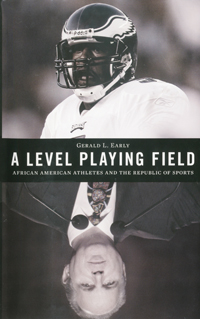 The NBA is scheduled to resume play Dec. 25, but one possibly lingering legacy of the six-month lockout has nothing to do with salary caps and revenue sharing. In October, with tensions high and no end in sight, sportscaster Bryant Gumbel made headlines with incendiary comments aimed toward NBA Commissioner David Stern.
The NBA is scheduled to resume play Dec. 25, but one possibly lingering legacy of the six-month lockout has nothing to do with salary caps and revenue sharing. In October, with tensions high and no end in sight, sportscaster Bryant Gumbel made headlines with incendiary comments aimed toward NBA Commissioner David Stern.
On his HBO show Real Sports, Gumbel called Stern a “modern plantation owner, treating NBA men as if they were his boys,” and said Stern’s moves during the impasse were “intended to do little more than show how he’s the one keeping the hired hands in their place.”
The remarks brought, yet again, the subject of race and sports into the forefront. A debate, says Gerald L. Early, PhD, the Merle Kling Professor of Modern Letters in Arts & Sciences at Washington University in St. Louis, that keeps recurring over and over again.
“Race remains a very salient point in sports,” Early says. “Thirty to 40 years since Curt Flood (challenged Major League Baseball’s reserve clause), since the rise of Muhammad Ali, since Harry Edwards urged black athletes to boycott the 1968 Olympics, when all these figures compared sports to slavery, the metaphor of slavery still has some power.
“Gumbel said that because he felt this was going to be not only a controversial or provocative statement, but it was going to be, for some, an accurate statement about the nature of things.
“So it makes me think, the more things change, the more they remain the same,” says Early, also director of WUSTL’s Center for the Humanities. “It certainly is proof that we still haven’t gotten post-racial with sports.”
All of which makes Early’s current book, A Level Playing Field: African American Athletes and the Republic of Sports (Harvard University Press, 2011), more timely than ever.
The book is a series of essays that gives historical perspective to the issue of race and sports through distinct personalities such as Flood, baseball’s Jackie Robinson and NFL quarterback Donovan McNabb.
It is divided into two parts: The first, “Leveling the Playing Field,” emanates from a series of lectures Early delivered at the DuBois Institute at Harvard University in 2003, three lectures in one week’s time.
The second, “Heroism and the Republic of Sports,” is a series of published essays centering on Robinson that further Early’s assertion that “no athlete is merely an athlete” – particularly the African-American athlete.
The stage is set in his first essay, “When Worlds Collide: Jackie Robinson, Paul Robeson, Harry Truman and the Korean War.” It’s the story about how Robinson, “the most famous black American of that time,” was subpoenaed to testify before the House Un-American Activities Committee on the subject of black loyalty to the United States during the Cold War.
Robinson, Early writes, was “the great black representative man, who knew more tellingly than anyone else, as a tormented lion in his brief, tough middle age, that no great black athlete is only an athlete.”
Essays in the book also cover Flood’s challenge of baseball’s reserve clause and the Donovan McNabb/Rush Limbaugh controversy, during which Limbaugh, the mismatched ESPN analyst, questioned McNabb’s talent and brought his race into the conversation.
Early acknowledges the complexity of bringing race onto the playing field, but wants to keep people talking, and this series of essays is a conversation starter, providing historical background and context.
“African-Americans have, in a couple of sports, become quite dominant, and, where their presence is less dominant — such as in Major League Baseball — there’s all sorts of talk about why it isn’t what people think it should be,” Early says.
“There is lot of conversation about race and sports. So the presence of black people on the field matters in some way beyond just their performance. It takes on social and political relevance.”
Writes Early in the essay on McNabb: “In the story of the NFL quarterback, it is difficult to tell if Limbaugh’s remark is merely the beginning of the end or merely the end of a very long beginning.”
Eight years later, with public figures like Gumbel still bringing race into the conversation, it’s a very long beginning indeed.
About Gerald Early
Early is a noted essayist and American culture critic. A professor of English, of African and African-American studies, and of American culture studies, Early is the author of several books, including The Culture of Bruising: Essays on Prizefighting, Literature and Modern American Culture, which won the 1994 National Book Critics Circle Award for criticism, and This Is Where I Came In: Black America in the 1960s.
He is also editor of numerous volumes, including The Muhammad Ali Reader and The Sammy Davis, Jr. Reader. He served as a consultant on four of Ken Burns’ documentary films for the Public Broadcasting Service: Baseball; Jazz; Unforgivable Blackness: The Rise and Fall of Jack Johnson; and The War, and appeared in the first three as an on-air analyst.